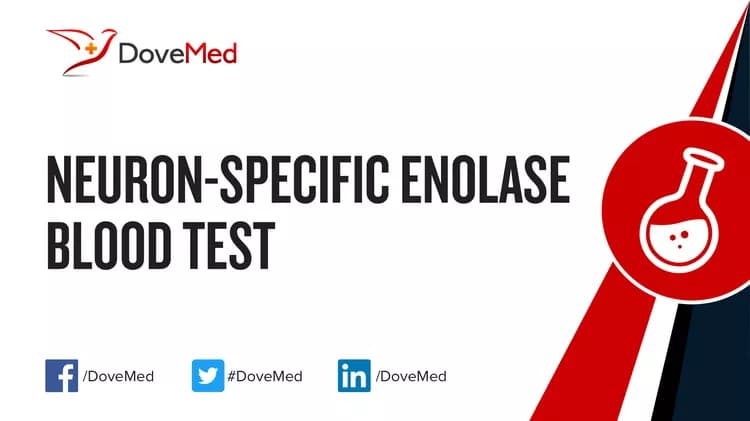What are other Names for this Test? (Equivalent Terms)
- Enolase 2 Blood Test
- Gamma-Enolase Blood Test
- NSE Blood Test
What is Neuron-Specific Enolase Blood Test? (Background Information)
- Neuron-specific enolase (NSE) is an enzyme involved in energy production
- The levels of NSE are increased during certain types of cancer, which makes it a useful marker for disease. NSE levels are also increased during certain neurological disorders
- Cells that produce NSE are the nervous system cells that respond to chemical messengers (neurotransmitters) produced by other nervous system cells and that release hormones in blood as a result. When these neuroendocrine cells become cancerous, they produce NSE in higher quantities
- The specific cancers linked with high levels of NSE include the following:
- Neuroblastoma
- Retinoblastoma
- Medullary carcinoma of the thyroid
- Carcinoid
- Pancreatic cell carcinoma
- Pheochromocytoma
- Small cell carcinoma of the lung
- Certain neurologic conditions also are associated with high levels of NSE production, which include seizures, brain injury, encephalitis, stroke, and dementia
- The Neuron-Specific Enolase Blood Test helps determine the levels of NSE in blood. It is used as a marker for neuroendocrine tumors and to aid in the diagnosis of neurologic disorders
- Both neuroendocrine tumors and neurologic conditions cause elevated levels of NSE in blood. Hence, when one condition is tested for, it may give a false-positive result, due to the presence of the other factor
- This means that performing the Neuron-Specific Enolase Blood Test to diagnose neuroendocrine disorders, when a neurologic disorder such as dementia is present, may cause a false-positive result
What are the Clinical Indications for performing the Neuron-Specific Enolase Blood Test?
Following are the clinical indications for performing the Neuron-Specific Enolase Blood Test:
- Screening for small cell carcinoma of the lung (SCLC)
- Cough
- Difficulty breathing
- Rapid weight loss
- Weakness
How is the Specimen Collected for Neuron-Specific Enolase Blood Test?
Following is the specimen collection process for Neuron-Specific Enolase Blood Test:
Sample required: Blood
Process of obtaining a blood sample in adults:
- A band is wrapped around the arm, 3-4 inches above the collection site (superficial vein that lies within the elbow pit)
- The site is cleaned with 70% alcohol in an outward spiral, away from the zone of needle insertion
- The needle cap is removed and is held in line with the vein, pulling the skin tight
- With a small and quick thrust, the vein is penetrated using the needle
- The required amount of blood sample is collected by pulling the plunger of the syringe out slowly
- The wrap band is removed, gauze is placed on the collection site, and the needle is removed
- The blood is immediately transferred into the blood container, which has the appropriate preservative/clot activator/anti-coagulant
- The syringe and the needle are disposed into the appropriate “sharp container” for safe and hygienic disposal
Preparation required: No special preparation is needed prior to the test.
What is the Significance of the Neuron-Specific Enolase Blood Test Result?
A high value (greater than 8.9 µg/L) for the Neuron-Specific Enolase Blood Test may point to a diagnosis of:
- Neuroblastoma
- Retinoblastoma
- Medullary carcinoma of the thyroid
- Carcinoid
- Pancreatic cell carcinoma
- Pheochromocytoma
- Small cell carcinoma of the lung (SCLC)
The laboratory test results are NOT to be interpreted as results of a "stand-alone" test. The test results have to be interpreted after correlating with suitable clinical findings and additional supplemental tests/information. Your healthcare providers will explain the meaning of your tests results, based on the overall clinical scenario.
Additional and Relevant Useful Information:
Certain medications that you may be currently taking may influence the outcome of the test. Hence, it is important to inform your healthcare provider of the complete list of medications (including any herbal supplements) you are currently taking. This will help the healthcare provider interpret your test results more accurately and avoid unnecessary chances of a misdiagnosis.
Related Articles
Test Your Knowledge
Asked by users
Related Centers
Related Specialties
Related Physicians
Related Procedures
Related Resources
Join DoveHubs
and connect with fellow professionals


0 Comments
Please log in to post a comment.